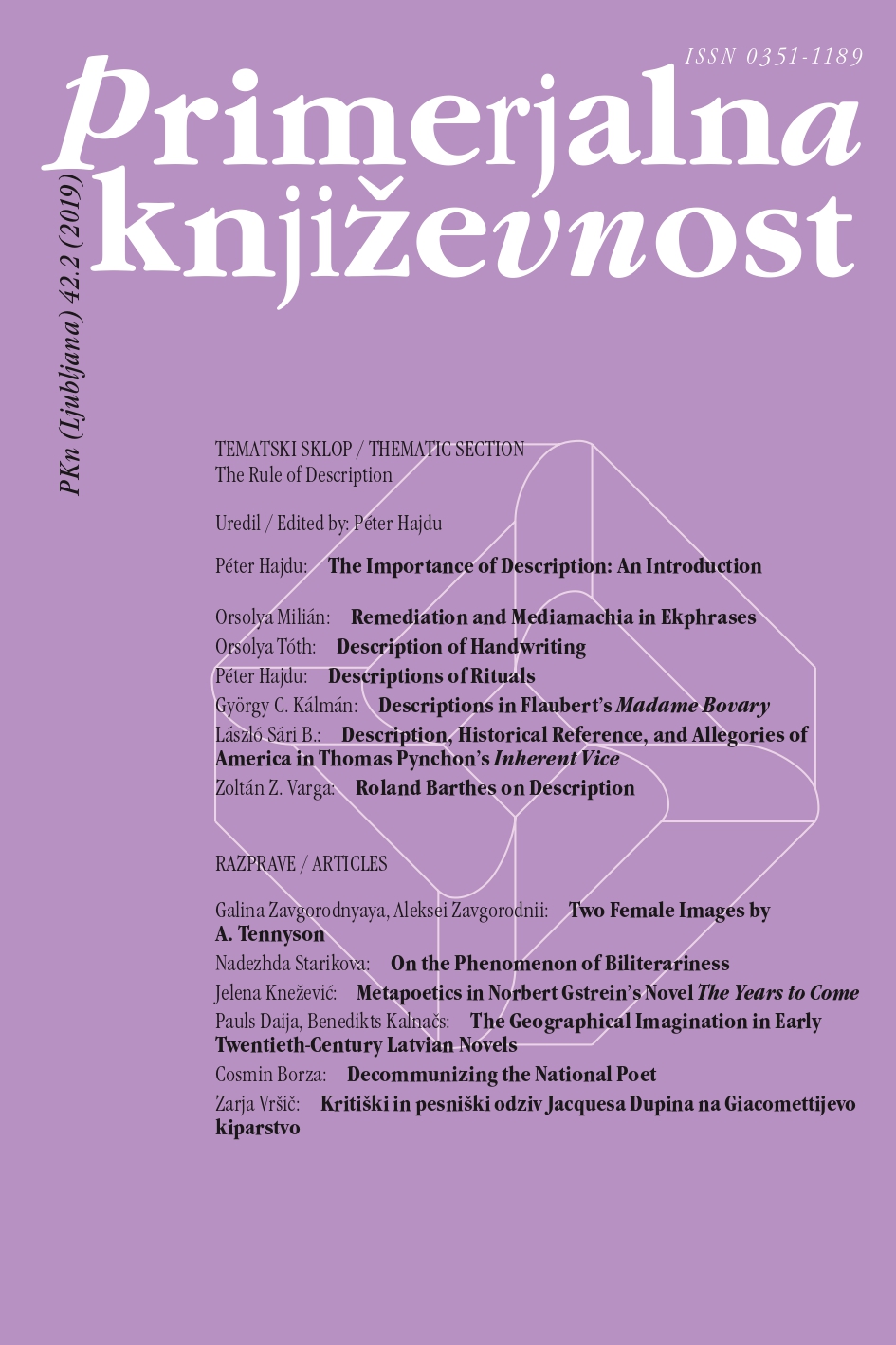The Importance of Description: An Introduction
Povzetek
The importance of descriptive passages varies among literary works and most likely differs among literary genres as well. Some non-literary narratives, such as a joke, may exist even without description. With the help of cognitive narratology, it may be argued that zero descriptions are inscribed in the text when a scenario is activated which implies default descriptions. If the importance of descriptions in narrative texts is imagined as a spectrum, short non-literary genres may represent one extreme in which descriptions play a negligible role, while the other end is occupied by narratives in which descriptions are of utmost importance. To introduce the thematic cluster on description I will explore the significance of the descriptive in the two extremes, first in a joke, then in utopian writing by means of two nineteenth-century Hungarian utopic novels which both abound in lengthy descriptions stitched together by a weak story. Utopia’s main purpose is to describe an alternative reality, but that reality is not alternative as much from the viewpoint of individual human action as it is from the standing of technical or (in many cases) a transformed natural environment and social functions. Such an alternative reality can be described, not narrated while the description may additionally make use of narrative elements.Literatura
Fforde, Jasper. Lost in a Good Book. New York: Penguin, 2002.
Genette, Gérard. Narrative Discourse. Tran. Jane E. Lewin. Ithaca: Cornell University Press, 1980.
– – –. “Boundaries of Narrative.” Tran. Ann Levonas. New Literary History 8.1 (1976): 1–13.
Hamon, Philippe. Du Descriptif. Paris: Hachette, 1993.
Homer. The Iliad. Tran. Augustus Taber Murray. Cambridge: Harvard University Press, 1924.
Jókai, Mór. A jövő század regénye, Vols I and II. Ed. Zsuzsa D. Zöldhelyi. Budapest: Akadémiai, 1981.
Prince, Gerald. A Grammar of Stories. An Introduction. The Hague: Mouton, 1973.
– – –. Narratology. The Form and Functioning of Narrative. Berlin: Mouton, 1982.
– – –. A Dictionary of Narratology. Lincoln: University of Nebraska Press, 1989.
Rimmon-Kenan, Shlomith. Narrative Fiction. Contemporary Poetics. London: Methuen, 1983.
Ryan, Marie-Laure. “Fiction, Non-Factuals, and the Principle of Minimal Departure.” Poetics 9.4 (1980): 333–422.
– – –. Possible Worlds, Artificial Intelligence, and Narrative Theory. Bloomington: Indiana University Press, 1992.
Stockwell, Peter. Cognitive Poetics. An Introduction. London: Routledge, 2002.
Toolan, Michael J. Narrative. A Critical Linguistic Introduction. London: Routledge, 1988.
Tóvölgyi, Titusz. “Az új világ.” XIX. századi magyar fantasztikus regények. Ed. Eszter Tarjányi. Piliscsaba: PPKE, 2002. 204–319.


